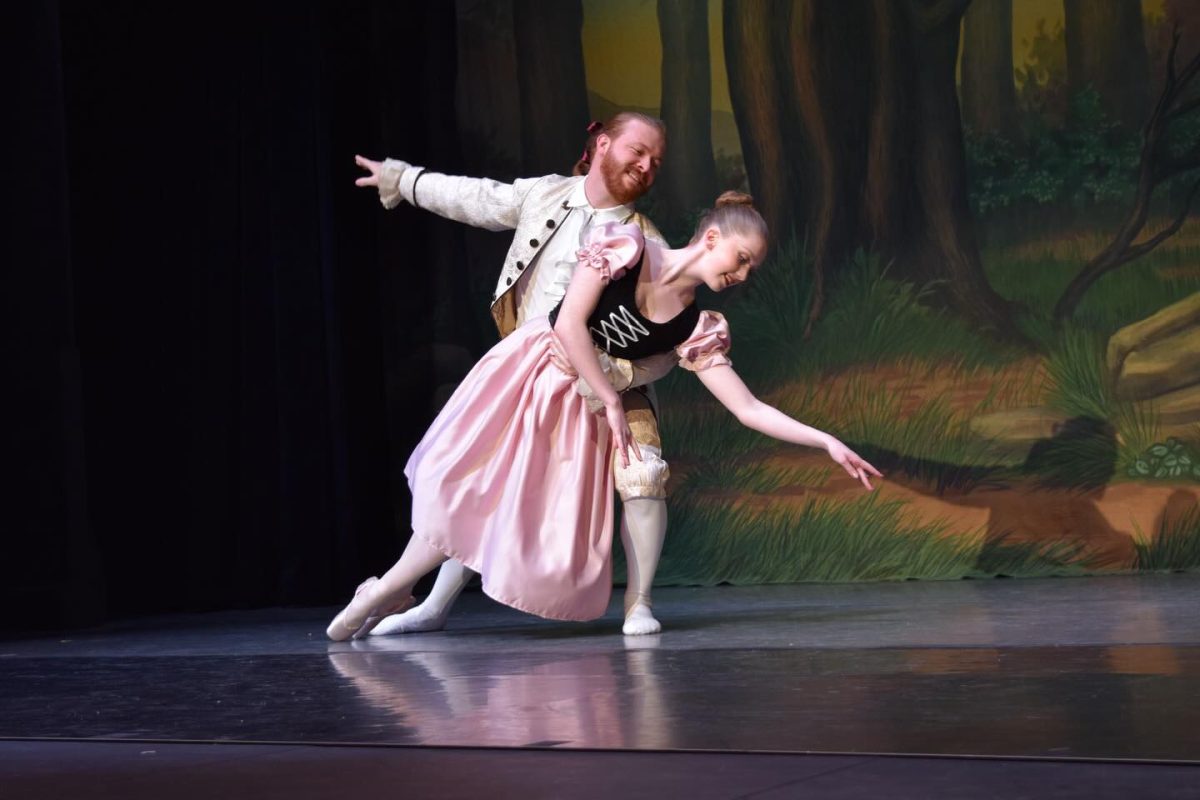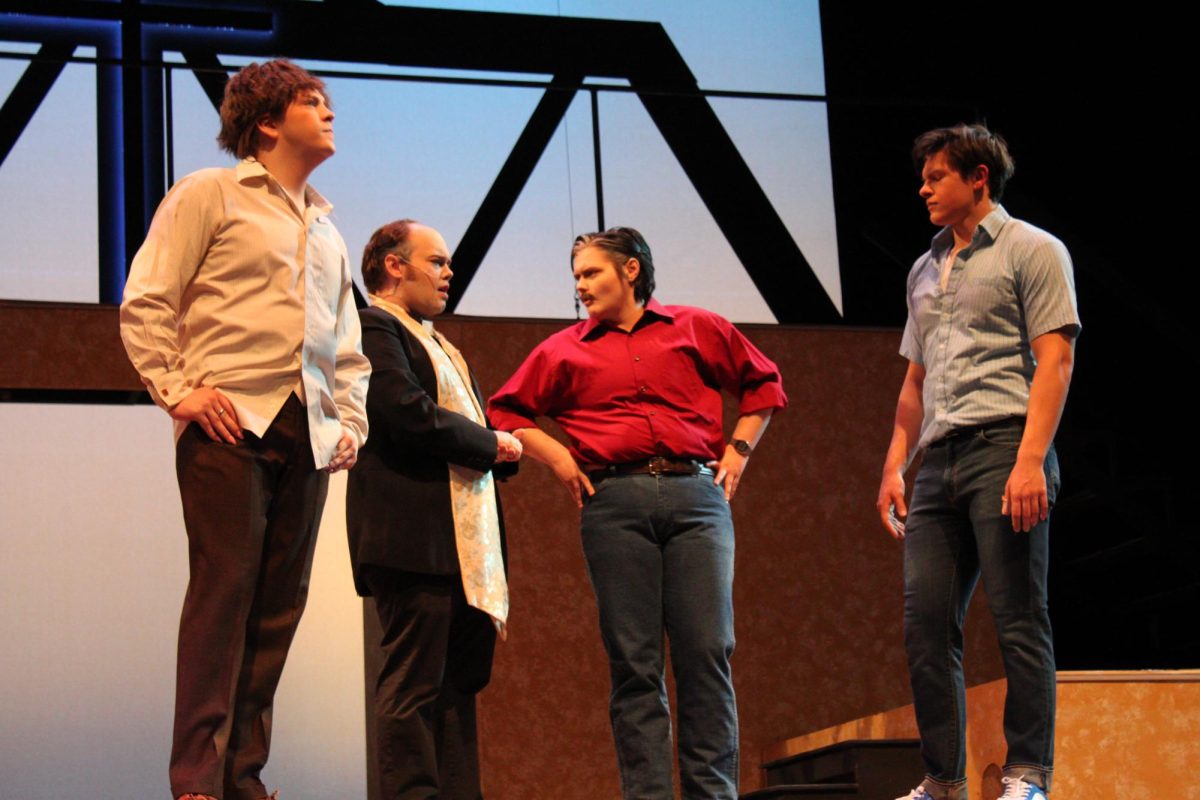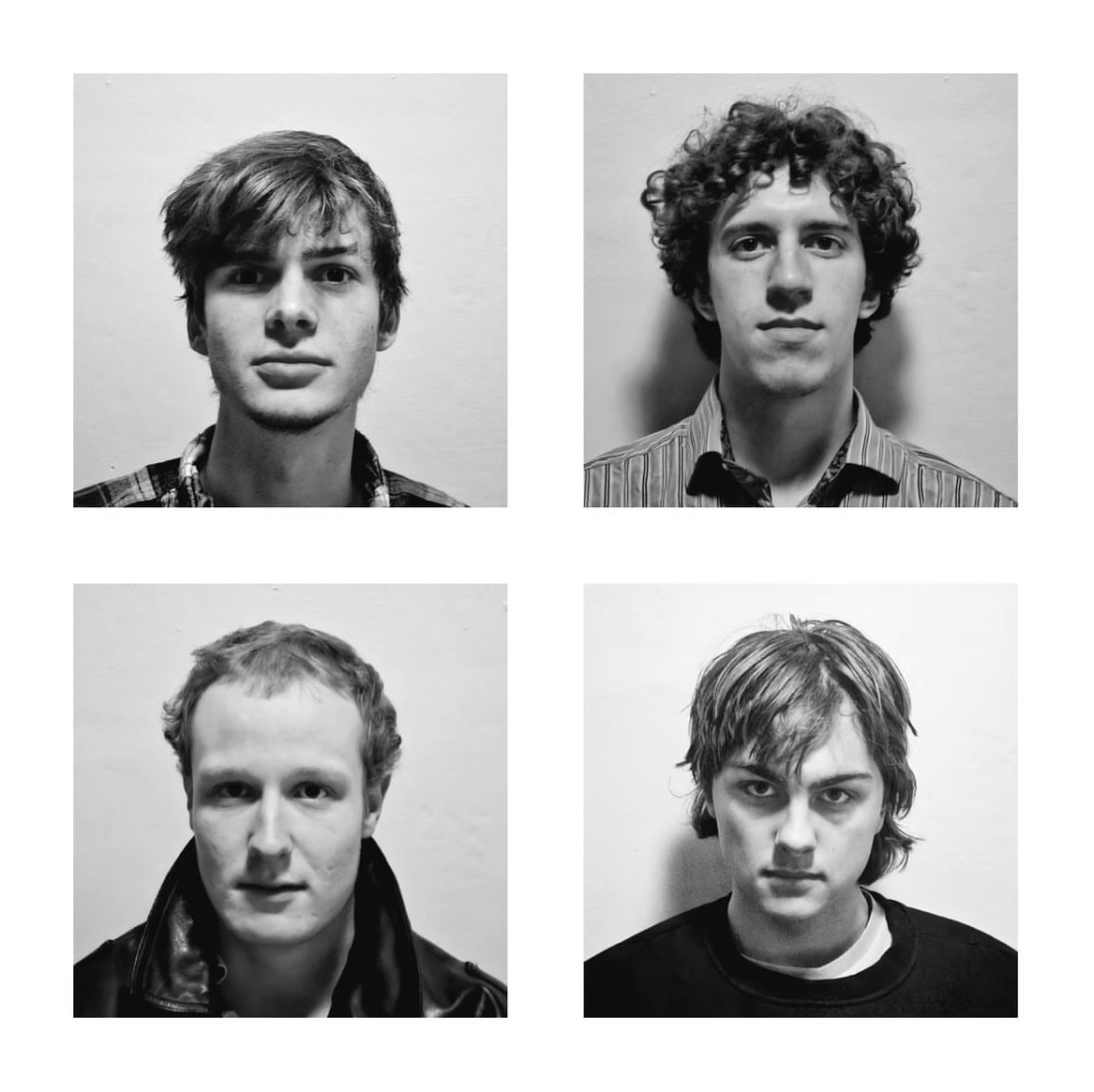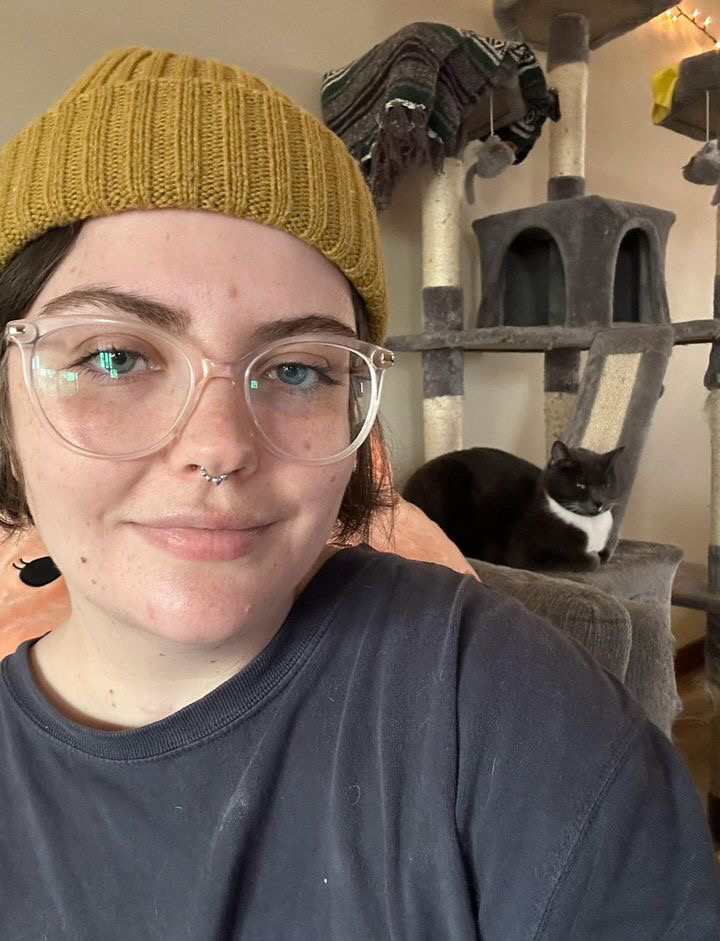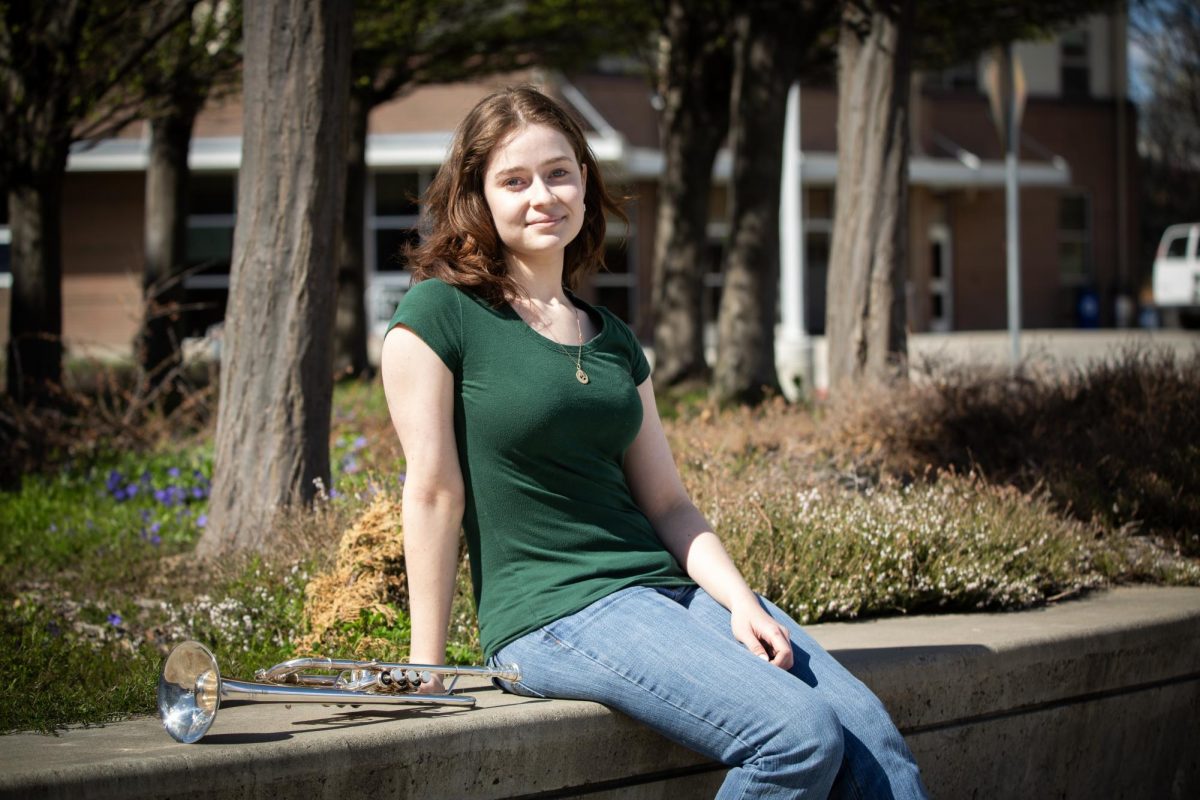Seniors Gracen Bayer, Jakob Burnham and Junior Dylan Hanson, are the CWU students and creatives behind two short films that were recently selected to be shown at the KINO Short Film Festival in Moscow, Idaho this weekend. (The writer of this piece has worked with all three of these filmmakers in the past, but not on any of the films discussed in regards to the film festival).
Bayer’s short film “Picnic” and Burnham and Hanson’s short film “In My Dreams” were both selected. “Picnic” was written, directed, edited and shot entirely by Bayer, while Burnham and Hanson worked on “In My Dreams” together under their production company DARKROOM509.
“509, like the Ellensburg area code,” Burnham said. “Not everyone’s gonna love [“In My Dreams”], it’s just weird. That’s just how we do things, especially in DARKROOM.” “In My Dreams” is a horror short filmed at the PULSE Magazine office in Lind Hall following two journalists investigating a lead about people claiming they’ve seen look-alikes in their small town.
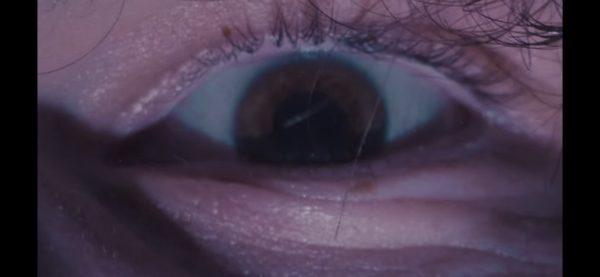
Burnham and co. were implored by the film program to submit their short films to many local festivals. Seeing that submission to KINO was free, Burnham and Hanson thought why not? Burnham says that he was happy to submit “In My Dreams,” as it’s the short that he is the most proud of amongst his array of projects.
“Big inspirations were like that YouTube analog stuff, like backroom stuff, and ‘Skinamarink’ … We literally watched [‘Skinamarink’] while we were shot-listing,” Burnham said.
Hanson shared that Burnham was the one who pushed to make something in-line with analog horror, which was something that Hanson says he was previously unfamiliar with.
“I’m sometimes out of touch to be honest, in terms of what’s going on in popular and current media,” Hanson said. “So Jakob was the one who showed me analog horror a while back, even before we started making the short. It really intrigued me because I’m not the most perfect DP [Director of Photography], but it kind of opened my eyes. It [Cinematography] is not necessarily about perfection, it’s about establishing an atmosphere and giving texture to the film.”
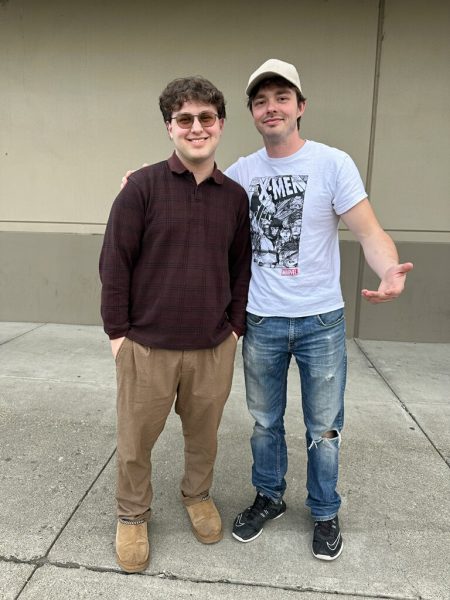
Hanson said that he had a feeling “In My Dreams” would be special from the first time they screened it.
“When we screened [“In My Dreams”] in our class … there was just a different feeling when that short ended,” Hanson said. “You just felt that silence in the air … When we got selected for the festival, it was really nice because with film … You’re not making any money on something and you’re working long hours on it, and then eventually you get some sort of recognition for it. It’s very rewarding and surprising in the best way possible.”
Bayer, who is in the nation’s capital right now as one of eight directors in the country chosen to participate in the Kennedy Center of American College Theater Festival, made “Picnic” for her cinematography class in her sophomore year.
“I did everything myself for this film,” Bayer said. “I was the writer, director, cinematographer and editor, which was my first time doing that. It was a really cool experience.”
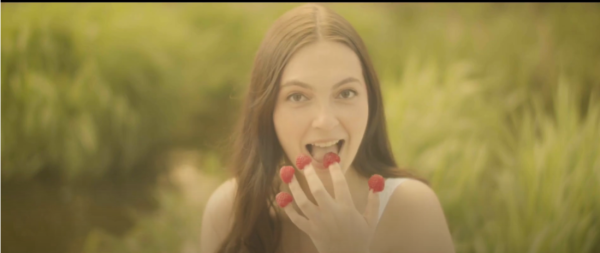
“Picnic” is a dialogue-less film that Bayer describes as “struggling with childhood expectations, and those expectations not becoming reality as you eventually grow up into an oblique adulthood.” Bayer grew up in Alabama, going to a river similar to the one the film is set at, and said that some of her inspiration for the film came from her struggle to adjust to her new life in Ellensburg.
“I made that film two years ago, which was a very different time in my life,” Bayer said. “I was still finding myself in college, but also in Ellensburg. I feel like Ellensburg reveals itself to you piece-by-piece, and one of those pieces for me was that river and I just kept going back to that river every time I needed to cry or I needed a moment to myself. It became a sort of sanctuary for me.”
Bayer’s film features contrasting images of a woman frolicking and enjoying a picnic on the river, and the same woman living a much more grim life in which appears to be a different reality. The two realities eventually converge at the end of the film, demonstrating the disappointment that Bayer tried to convey in the filmmaking.
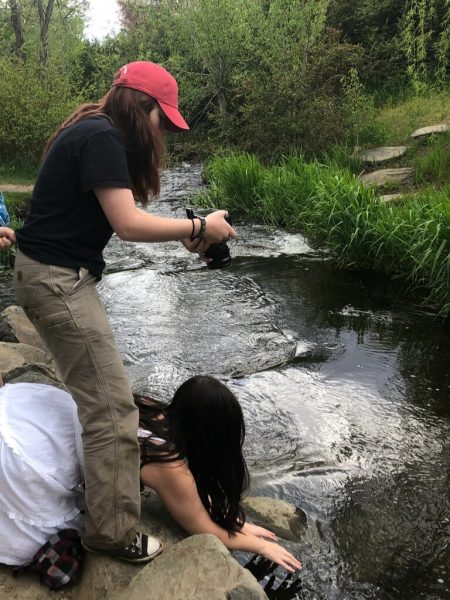
Another theme of interest for Bayer was the idea of sexualization, and specifically how she feels consumption is something she feels is both uniquely femme, and also something that has been polluted for her in adulthood. Towards the middle of the film, Bayer shoots her lead actress Sydney Renee eating raspberries off of her fingers, which is one of the more direct visualizations of her messages.
“I feel that consumption and fruit is very feminine,” Bayer said. “I think it’s an interesting discussion of how these child-like things and these child-like ways of consumption are sexualized. I remember as a kid putting those things on my fingers and eating like that, but I think now if I did that as an adult that can also be seen as sexy … being a child and so innocent and consuming, and then growing up and reflecting on all of that and wanting to do those things now, but knowing how they’d be perceived, it’s just a really interesting conversation to have.”



